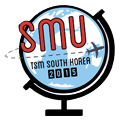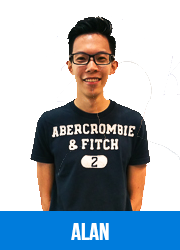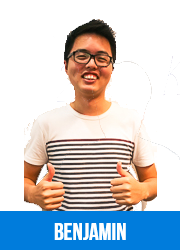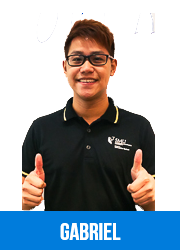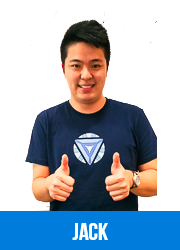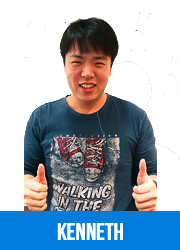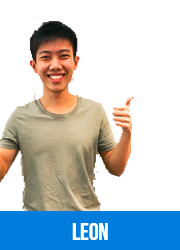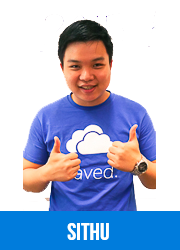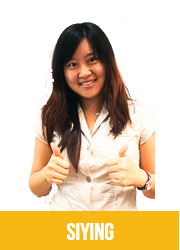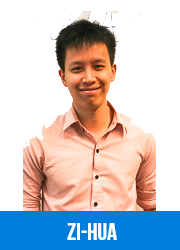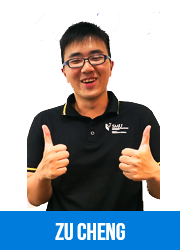Difference between revisions of "1415T2g1 South Korea/Reflection/day2"
(→ShiMin) |
(→Siying) |
||
| Line 426: | Line 426: | ||
<div style="width: 70%; margin-left: 20px; float: left; padding: 20px; "> | <div style="width: 70%; margin-left: 20px; float: left; padding: 20px; "> | ||
<div style="font-size: 20px">Day 2: The tour</div> | <div style="font-size: 20px">Day 2: The tour</div> | ||
| − | <div> | + | <div> |
| + | |||
| + | <h3>Pristone</h3> | ||
| + | The CEO of Pristone, MinHee Cho initially wanted to be hold a managerial role in a company. However, his sunbae (high school senior) changed his decision and life. His sunbae bring him to the entrepreneur club. In there, MinHee realise that he is more suitable in doing start up. From his seniors, he learnt that you must always separate your brand name with the company name. That is because you might be creating other products, but if you uses your company name as your band name, then what happen to the new product? He learnt a lot from SNUSV.NET. The reason why he decide to start a company because if you work in a big company, you will always be only a “part” of it. And since you only live once, you should follow your dream. He also mentioned that there’s nothing to lose if you fail to start up. We are not our parents’ generation where we always have to worry if there is food for the family. Also, we can always start again. To him, “Business is ‘High Risk, High Return’, but worth to start”. So even though the risk is high, but the return is high as well. A lot of stuff can be gained through start up. | ||
| + | |||
| + | However, with start up, it will damage relationship. Through his talk, I learnt that the creator of Facebook, Mark Zuckerberg do not have much time for his then-girlfriend. Example he might be called up for work or need to read his emails during their dates. Thus to avoid damaging the relationship, they agreed to set aside 3-4 per week where there will be completely no work disruption. | ||
| + | |||
| + | “Entrepreneurship is the only way to achieve my goal” is something that MinHee mentioned as well. He believed that creativity will be limited if he works in a company. His colleague might just stole his idea without crediting him. He also said that you will not be able to buy a house in Seoul even if you and your wife work 10 years as the top management. | ||
| + | |||
| + | During his presentation, I learnt that 2007 was the worst time to start up in Korea. Because iPhone was launched in 2008 in a lot of countries and 2009 in Korea. Thus there’s a change in technology. Hence there isn’t much money to support start up. He also went into Gom TV in 2008 December. And this is the place where he learnt where he did wrongly. | ||
| + | |||
| + | He stated that you do not need to start a project with money and a real company. You can develop the application during your free time. Example Hotmail was created by 2 engineers during the weekends. However, he also mentioned that you have to start early, else others might have patented the idea. | ||
| + | |||
| + | Towards the end of his presentation he taught us some mistakes that we should avoid. You should look at the market demand and not just do a product that sounds great/cool. You should do on a real world problem. You need to know the market and competitors well. Also, it is important to have the capability such as having engineering in the group. Never do big service at the start. Example Google started off as a search engineer for a school before slowly becoming the current Google that everyone knows. You should also stay focus by doing only 1 project at a time. It is not advisable for students to do start up during school time. Also, always take note of the cultural different between countries. Like LinkedIn isn’t successful in Korea. That’s because LinkedIn asked for date of graduation. However, Korean are more particular with date of entry because the male students will need to go for NS so graduating late. | ||
| + | |||
| + | <h3>Seoul National University (SNU)</h3> | ||
| + | The student from Seoul National University (SNU) is Suli. Her 1st major is international relationship and her 2nd major is in entrepreneurship. Initially she wasn’t sure what second major to take. Thus when she read the course description for entrepreneurship, she was just trying her luck, which in the end she got it. According to her, there’s only 5 girls in the whole cohort of 60 entrepreneur major student. So it seems like there is lesser Korean females who are interested in starting a business. | ||
| + | |||
| + | Their entrepreneurship major provides various programs such as the programing study group, entrepreneurship training which is a 2D1N student camp. Also, they have something like TSM where they went to Silicon Valley. These program are open to any SNU student regardless of your GPA. I believe this is a good approach as there are some students that might not declare their 2nd major as entrepreneurship but yet has the interest in starting a company. | ||
| + | |||
| + | According to her reflection after going to Silicon Valley, she felt that the people in Silicon Valley are not afraid of failure. When the Korea VC invest in your company, they expect you to success. But it is not easy to success. On the other hand, Silicon Valley people are not afraid of your failure. | ||
| + | |||
| + | <h3>Korean Business Angel Association (KBAA) </h3> | ||
| + | Their main purpose is to create new jobs and growth. To build a start-up ecosystem which starts from invest to growth to exit and to reinvestment. In the past they did loan type, but they are not moving towards the investment type. Being in the investment type is more beneficial to the start-ups. That’s because if it is under a loan type and if the product fail, the company will be considered as low credible. However, in the new system of investment type, even if they failed, the company can still start a new company. | ||
| + | |||
| + | KBAA provide few programs, such as the Angle Investment Matching Fund where it is a 1 to 1 investing share with an angel investor. The 2nd program is the TIPS (Tech Incubator Programs for Startup). This is the accelerator investment at 100million krw minimum. SMSA provide 900million krw more. Members of this program can get mentoring chance from famous entrepreneur. This program has 68 companies currently and 42Billion krw had been spent. Lastly, there is the Angel Forum Operation where it is a forum for young entrepreneur. | ||
| + | |||
| + | KBAA future plan is to have a “TIPS” Town. They aim to launch this by June/July this year. They gather start-up under the TIPS program and intend to build a 2nd Silicon Valley in Korea. | ||
| + | |||
| + | Unfortunately, these programs are only available for company based in Korea. Mr Go encourages us to start a company because he predict that it will be hard to find a stable job in the future. 50% of jobs will disappear. Thus it will be better to start your own company. According to statistics, start-up don’t success on the first round. In Silicon Valley, you will need around 3 failure before you succeed. | ||
| + | |||
| + | He left us with a very thoughtful phase “When you try to earn money, you wouldn’t earn it. But if you follow your dream, the money will follow you”. I agreed to that because with passion, you can push yourself to work harder and better. Thus the money will eventually follow you. | ||
| + | |||
| + | |||
| + | <h3>FuturePlay</h3> | ||
| + | It is a start-up that build another start-up. Their early focus is on human-computer interaction. It has 4 phase – innovating, hardware platform, service platform and big data analysis. The big data analysis is to find unmet consumer needs. There’s investors that invest in FuturePlay. And FuturePlay consist of advisors, partners, investors in residence, boosting company and specialist. Investor in residence has a maximum stay of 1 year. And they will receive the same salary as they have at their own company. The boosting is also 1 year max which FuturePlay will decide if this start up can be spin off. If the company got spin off, FuturePlay will get a share of around 15-35%. The amount depend on how much you spend during the stay and how good is the company. Also during this period of time, FuturePlay will return the patent to the company. | ||
| + | The speaker also introduce a lot of amazing application that belongs to start up in FuturePlay: | ||
| + | * Smart Wear: a watch that is smart enough to remember what you copied at the origin computer and allow you to paste it when you reach your designated computer. | ||
| + | * Finger Sense: able to make use different part of your finger, such as your nails, finger, and knuckle. Example the knuckle can act as the “right click” on your mobile phone to show additional options | ||
| + | * Huinno: a product that “disrupt healthcare industry through wearable technology”. You just need to wear a watch and place your finger there and they can measure your blood pressure to 95% accuracy. Hospital blood pressure machine can only measure up to 80% accuracy. The company went to 6 VC but got rejected before going to FuturePlay. This acts as a reminder that it’s never easy to do start-ups and it bounds to have challenges. But you should not give up easily. | ||
| + | * Vuno: they can recognize the location of your photo and also tell you the ratings of the restaurant in your photo | ||
| + | * Kono Lab: a smart scheduler which will check the weather, traffic, rating, etc. Example if you will to meet your friend at a certain timing, they will look for a good rating restaurant that is centre to you and your friend. If you do not eat seafood, the scheduler will not arrange for a seafood restaurant. | ||
| + | * SNAP: it is the first spin off from FuturePlay. They know the difficulty in developing based on what the designers want. Thus they come up with this application whereby you just have to connect your laptop and load the image. And if you tilt it, the program will code it out for you. | ||
| + | Through FuturePlay, I learnt that Korea patent are not so useful. They will always go through the loop holes. And if the patent is to go against big company such as Samsung, the Government will support the big companies and ignore the start-ups. | ||
| + | |||
| + | </div> | ||
</div> | </div> | ||
<!-- END OF REFLECTION --> | <!-- END OF REFLECTION --> | ||
| Line 435: | Line 480: | ||
<div style="position: absolute; top: 10px; right: 10px; width: 50px; height: 20px; overflow: hidden"> | <div style="position: absolute; top: 10px; right: 10px; width: 50px; height: 20px; overflow: hidden"> | ||
<div style="margin-top: -4em"> | <div style="margin-top: -4em"> | ||
| + | |||
==<div>Thandar </div>== | ==<div>Thandar </div>== | ||
</div> | </div> | ||
Revision as of 00:46, 29 April 2015
South Korea
| Day 2 |
Contents
Day 2: Reflections
Pristone
Pristone is located in Seoul National University (SNU) where Mr. Minhee Cho (CEO of Pristone) graduated from. SNU has an entrepreneurship club called SNUSV (Seoul National University Student Venture) which gathers students with interest in entrepreneurship and is a support group for nurturing potential entrepreneurs. Mr. Cho was introduced to SNUSV club in 2002 by a senior and this experience changed his career decision from business management in mechanical engineering to entrepreneurship. He went on to lead the club as president in 2004.
Up to date, he has had a wide range of experience tinkering with potential business ideas which he shared with us.
In June 2003, he joined Samsung as an intern for about 7 month. As a person with overflowing creativity juice, he found that he did not have much freedom in expressing his ideas. Working in a company was also not the fastest and best way for him to earn money. Hence, he decided to take on the path of entrepreneurship.
His first start up, CIZIX, was in October 2005 but it wasn’t successful as they were too optimistic about the product. He then set up Rebi in Feburary 2007, a search engine, but it was disrupted by the release of iPhone and money from investors was scarce at that time. The team later abandoned the project as they could no longer financially support the development as money was needed for technology, research, and maintenance of the application. He went on to develop some other ideas and in December 2010, he set up Pristone with some of his friends who worked with him on previous projects.
One advice he shared was to keep the company name different from the brand name. This allows the company to develop many different applications under one brand.
The first application developed under Pristone was Gamification in March 2011 but they were disappointed as they had high expectations. Also in 2011, they developed 3 other applications (PetsGram, Kaktail, Now) which all were not well received by the public. They reached a panic period as they didn’t know what to do but they kept trying new ideas until the team broke up in February 2012.
Then in August 2012, the remaining founders started getRocket using the Tumblr platform. getRocket was a platform dedicated to job search in start-ups. While they fast-tracked their development of the idea through Tumblr, another company which came up with the same idea before them took 3 months to develop a website for it. This resulted in Pristone gaining first mover advantage. When getRocket was proven to be well received, they moved it to a website and renamed the application to RocketPunch.
I’ve learnt a lot from Mr. Cho and to sum up my learnings, it would be to
- Try various ideas before you decide to start a business. You will need time and resource to try but “if you make time to try, you will find the answer”.
- Take your time to find a product/service that really meets the needs of people. No point rushing and coming up with something that people don’t want or need.
- Solve a real world problem with realistic plan and focus.
- The best time to try starting up a business is when you’re in school.
- When you start testing an idea, you don’t need to fully develop the service. Making use of existing resources and platforms is a way to quickly speed up your development process.
- When a product/service becomes successful, don’t get too ahead of yourself. Updating the service is just as trying as the initial development. If you update your service improperly, you will lose users. Hence, it is important to test the waters to see if the added functionality is what the users really want.
- Partnership is very important. Pristone has had partnership with Venture Square, Platum, and beSuccess which helped them win over their competitors.
- Growth hacking can help to measure success and failure. The funnel concept in growth hacking is coined as AARRR and consists of Acquisition, Activation, Revenue, Retention, and Referral. Out of them all, retention of users is the most difficult.
- Address culture difference in the service. For example, Linkedin requires education graduation date but Koreans go by entrance date as some students take long breaks in school for other activities.
- Having connections is important. Through connection, he got jobs, found co-workers, got information for his business and they were of great support to his growth as an entrepreneur.
- Investors always ask “Why you?”.
Seoul National University (SNU)
We were received by Sulli, a student studying in the entrepreneurship course offered by SNU. She shared with us in a lecture hall about what she learnt in the course. Entrepreneurship first spiked interest in 2007 by the need for more jobs and it’s only recently that universities introduced courses to guide students who are interested in setting up businesses. The course was introduced 3 semesters back and they have received 20 students per semester and currently there are 60 students studying in the course. The course caters modules to help students who already have start-ups or are planning to start a business. They learn about product development from identifying the problem, customer segmentation, to revenue streams. In the course, they also have student organized events and activities like study groups, visits to Silicon Valley, and entrepreneurship training.
The entrepreneurship sector in South Korea is still growing and we expect to see more support in universities for the development of start-ups.
Korean Business Angel Association (KBAA)
We had a short 40 minutes session with KBAA and it’s a relatively new non-profit company that helps start-ups get funding from angel investors and the government. Mr. Go, Chairman of KBAA shared with us that marketing, patent/legal issues, and funding are common problems that start-ups face. Hence, KBAA serves as a platform to build an angel investor network for aspiring entrepreneurs to tap on. The reason why KBAA focuses on angel investor is because angel investors are open to investing in ideas that have yet to be solidified.
KBAA has a Angel Investment Matching Fund where the government provides the entrepreneur with an investment amount that matches the angel investor’s investment. They also have a Tech Incubator Program for Startups (TIPS) which has mentors to guide the newbies. These mentors are usually people who have start-up experience and want to contribute back to the entrepreneurship eco system. This enhances efficiency of finding good startups with good ideas. After the angel investor decides to invest, the government will then review the idea and decide on how much to invest. In addition to the two activities above, KBAA also provides Angel Forum Operations which provides platforms for entrepreneurs to learn from people with experience in the field.
Mr. Go also shared with us that only 1% of students are interested in start-ups. This is because most people aim to enter the big brands like Samsung and LG and many are also unaware about the support for starting up a business. He estimates that in 20 to 30 years, many of our current jobs will become obsolete and by then, people will have to find new way to earn money.
From the sharing session, I believe that the entrepreneurship support in South Korea is getting stronger but there needs to be an increase in awareness of these opportunities.
FuturePlay
FuturePlay is a company builder which makes investment in technology focused companies. They support innovators who have the capability and knowledge to kick start their business. Currently, they have funded many companies with potential to roll out their product/service. He shared with us about a few companies like
- FingerSense - an application that senses different objects and parts of your hand to perform various functions
- WAVE – an application which measures air quality in your current surrounding
- SNAP – interactive mobile prototyping application
and more.. FuturePlay creates patents for these ideas and keeps them until the product/service spins-off in the market. They provide mentorship for entrepreneurs with high potential to disrupt the current technology industry and they have been very successful in nurturing these entrepreneurs.
Like KBAA, FuturePlay is part of the entrepreneurship ecosystem that supports aspiring entrepreneurs and we can look forward to seeing revolutionary technology in the market soon.
Pristone
The CEO of Pristone, MinHee Cho initially wanted to be hold a managerial role in a company. However, his sunbae (high school senior) changed his decision and life. His sunbae bring him to the entrepreneur club. In there, MinHee realise that he is more suitable in doing start up. From his seniors, he learnt that you must always separate your brand name with the company name. That is because you might be creating other products, but if you uses your company name as your band name, then what happen to the new product? He learnt a lot from SNUSV.NET. The reason why he decide to start a company because if you work in a big company, you will always be only a “part” of it. And since you only live once, you should follow your dream. He also mentioned that there’s nothing to lose if you fail to start up. We are not our parents’ generation where we always have to worry if there is food for the family. Also, we can always start again. To him, “Business is ‘High Risk, High Return’, but worth to start”. So even though the risk is high, but the return is high as well. A lot of stuff can be gained through start up.
However, with start up, it will damage relationship. Through his talk, I learnt that the creator of Facebook, Mark Zuckerberg do not have much time for his then-girlfriend. Example he might be called up for work or need to read his emails during their dates. Thus to avoid damaging the relationship, they agreed to set aside 3-4 per week where there will be completely no work disruption.
“Entrepreneurship is the only way to achieve my goal” is something that MinHee mentioned as well. He believed that creativity will be limited if he works in a company. His colleague might just stole his idea without crediting him. He also said that you will not be able to buy a house in Seoul even if you and your wife work 10 years as the top management.
During his presentation, I learnt that 2007 was the worst time to start up in Korea. Because iPhone was launched in 2008 in a lot of countries and 2009 in Korea. Thus there’s a change in technology. Hence there isn’t much money to support start up. He also went into Gom TV in 2008 December. And this is the place where he learnt where he did wrongly.
He stated that you do not need to start a project with money and a real company. You can develop the application during your free time. Example Hotmail was created by 2 engineers during the weekends. However, he also mentioned that you have to start early, else others might have patented the idea.
Towards the end of his presentation he taught us some mistakes that we should avoid. You should look at the market demand and not just do a product that sounds great/cool. You should do on a real world problem. You need to know the market and competitors well. Also, it is important to have the capability such as having engineering in the group. Never do big service at the start. Example Google started off as a search engineer for a school before slowly becoming the current Google that everyone knows. You should also stay focus by doing only 1 project at a time. It is not advisable for students to do start up during school time. Also, always take note of the cultural different between countries. Like LinkedIn isn’t successful in Korea. That’s because LinkedIn asked for date of graduation. However, Korean are more particular with date of entry because the male students will need to go for NS so graduating late.
Seoul National University (SNU)
The student from Seoul National University (SNU) is Suli. Her 1st major is international relationship and her 2nd major is in entrepreneurship. Initially she wasn’t sure what second major to take. Thus when she read the course description for entrepreneurship, she was just trying her luck, which in the end she got it. According to her, there’s only 5 girls in the whole cohort of 60 entrepreneur major student. So it seems like there is lesser Korean females who are interested in starting a business.
Their entrepreneurship major provides various programs such as the programing study group, entrepreneurship training which is a 2D1N student camp. Also, they have something like TSM where they went to Silicon Valley. These program are open to any SNU student regardless of your GPA. I believe this is a good approach as there are some students that might not declare their 2nd major as entrepreneurship but yet has the interest in starting a company.
According to her reflection after going to Silicon Valley, she felt that the people in Silicon Valley are not afraid of failure. When the Korea VC invest in your company, they expect you to success. But it is not easy to success. On the other hand, Silicon Valley people are not afraid of your failure.
Korean Business Angel Association (KBAA)
Their main purpose is to create new jobs and growth. To build a start-up ecosystem which starts from invest to growth to exit and to reinvestment. In the past they did loan type, but they are not moving towards the investment type. Being in the investment type is more beneficial to the start-ups. That’s because if it is under a loan type and if the product fail, the company will be considered as low credible. However, in the new system of investment type, even if they failed, the company can still start a new company.
KBAA provide few programs, such as the Angle Investment Matching Fund where it is a 1 to 1 investing share with an angel investor. The 2nd program is the TIPS (Tech Incubator Programs for Startup). This is the accelerator investment at 100million krw minimum. SMSA provide 900million krw more. Members of this program can get mentoring chance from famous entrepreneur. This program has 68 companies currently and 42Billion krw had been spent. Lastly, there is the Angel Forum Operation where it is a forum for young entrepreneur.
KBAA future plan is to have a “TIPS” Town. They aim to launch this by June/July this year. They gather start-up under the TIPS program and intend to build a 2nd Silicon Valley in Korea.
Unfortunately, these programs are only available for company based in Korea. Mr Go encourages us to start a company because he predict that it will be hard to find a stable job in the future. 50% of jobs will disappear. Thus it will be better to start your own company. According to statistics, start-up don’t success on the first round. In Silicon Valley, you will need around 3 failure before you succeed.
He left us with a very thoughtful phase “When you try to earn money, you wouldn’t earn it. But if you follow your dream, the money will follow you”. I agreed to that because with passion, you can push yourself to work harder and better. Thus the money will eventually follow you.
FuturePlay
It is a start-up that build another start-up. Their early focus is on human-computer interaction. It has 4 phase – innovating, hardware platform, service platform and big data analysis. The big data analysis is to find unmet consumer needs. There’s investors that invest in FuturePlay. And FuturePlay consist of advisors, partners, investors in residence, boosting company and specialist. Investor in residence has a maximum stay of 1 year. And they will receive the same salary as they have at their own company. The boosting is also 1 year max which FuturePlay will decide if this start up can be spin off. If the company got spin off, FuturePlay will get a share of around 15-35%. The amount depend on how much you spend during the stay and how good is the company. Also during this period of time, FuturePlay will return the patent to the company. The speaker also introduce a lot of amazing application that belongs to start up in FuturePlay:
- Smart Wear: a watch that is smart enough to remember what you copied at the origin computer and allow you to paste it when you reach your designated computer.
- Finger Sense: able to make use different part of your finger, such as your nails, finger, and knuckle. Example the knuckle can act as the “right click” on your mobile phone to show additional options
- Huinno: a product that “disrupt healthcare industry through wearable technology”. You just need to wear a watch and place your finger there and they can measure your blood pressure to 95% accuracy. Hospital blood pressure machine can only measure up to 80% accuracy. The company went to 6 VC but got rejected before going to FuturePlay. This acts as a reminder that it’s never easy to do start-ups and it bounds to have challenges. But you should not give up easily.
- Vuno: they can recognize the location of your photo and also tell you the ratings of the restaurant in your photo
- Kono Lab: a smart scheduler which will check the weather, traffic, rating, etc. Example if you will to meet your friend at a certain timing, they will look for a good rating restaurant that is centre to you and your friend. If you do not eat seafood, the scheduler will not arrange for a seafood restaurant.
- SNAP: it is the first spin off from FuturePlay. They know the difficulty in developing based on what the designers want. Thus they come up with this application whereby you just have to connect your laptop and load the image. And if you tilt it, the program will code it out for you.
Through FuturePlay, I learnt that Korea patent are not so useful. They will always go through the loop holes. And if the patent is to go against big company such as Samsung, the Government will support the big companies and ignore the start-ups.
